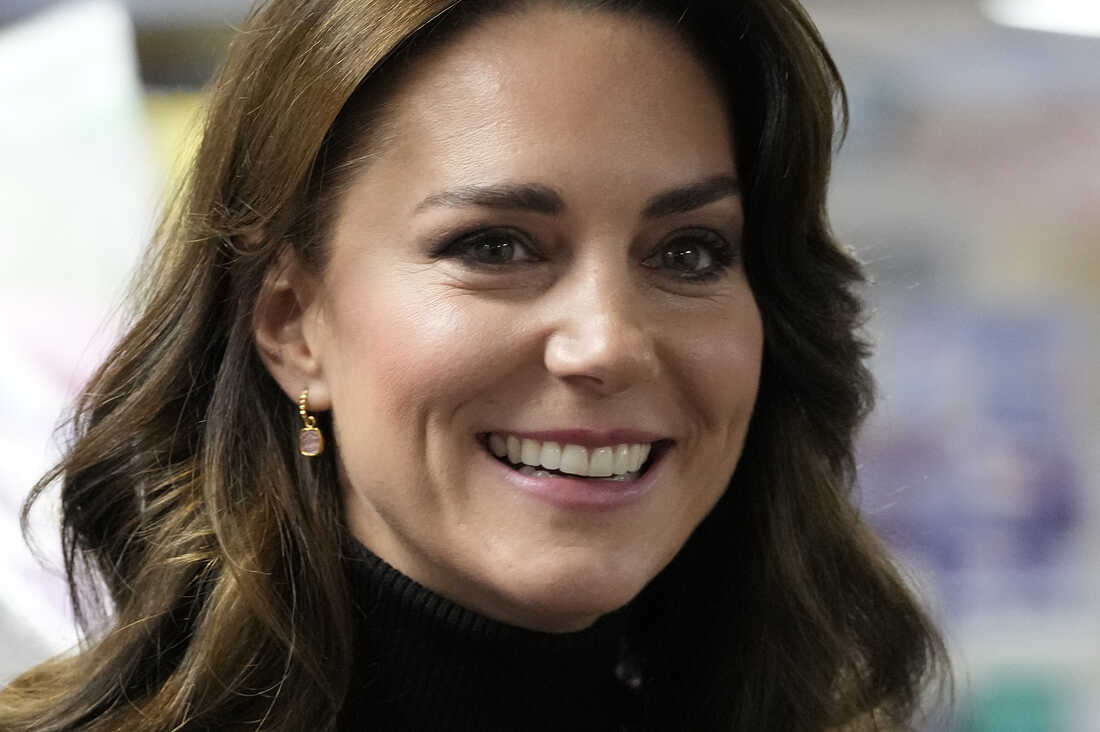The Duchess of Cambridge, aged 42, addressed speculations about her health and whereabouts in a video released on Friday. Notably, she has not made any public appearances since Christmas. Despite this announcement, there remains a significant amount of uncertainty surrounding her condition, including the specific type of cancer she is dealing with. The latest official statement from Kensington Palace indicated that she underwent a planned abdominal surgery in January.
Kate revealed in her video statement that although the surgery was initially believed to be for a non-cancerous condition, subsequent tests revealed the presence of cancer. Consequently, her medical team recommended a course of preventative chemotherapy, which she has now begun.
The terminology used by Kate to describe her treatment, particularly “preventative chemotherapy,” has raised questions among medical experts. It is noted that “preventative chemotherapy” is not a recognized medical term. Instead, chemotherapy may be administered either before or after other treatments.
It is speculated that Kate may be referring to adjuvant chemotherapy, which is often given following surgery. The aim of adjuvant chemotherapy is to eliminate any remaining cancer cells that were not eradicated by the primary treatment, thereby reducing the risk of cancer recurrence.
While adjuvant therapy is commonly used for conditions such as colon cancer, breast cancer, and lung cancer, the specific details of Kate’s treatment plan remain undisclosed.
Even if Kate’s surgery in January successfully removed any tumors later discovered to be cancerous, chemotherapy may still be recommended to prevent the cancer from returning.
After undergoing a surgery to remove cancer, additional treatments known as preventative or adjuvant therapies may be advised to lower the risk of cancer recurrence and enhance the chances of a cure. These treatments can include chemotherapy, immunotherapy, hormone therapy, and others.
While Kate may not fit the intended age or sex for certain chemoprevention medications, there are medications prescribed specifically to reduce the risk of cancer development or recurrence in high-risk individuals. For example:
- Colon cancer: Nonsteroidal anti-inflammatory drugs (NSAIDs) such as aspirin and Celebrex (celecoxib) are being studied for their potential to prevent colon cancer and reduce the risk of polyps, although evidence is not conclusive.
- Breast cancer: Medications like Soltamox (tamoxifen) and Evista (raloxifene), both selective estrogen receptor modulators (SERMs), are FDA-approved for preventing invasive breast cancer in high-risk individuals aged 35 and older and postmenopausal women, respectively. Arimidex (anastrozole), an aromatase inhibitor, is often used off-label for breast cancer prevention after menopause.
- Prostate cancer: Drugs like finasteride and dutasteride, alpha-reductase inhibitors, are under investigation for reducing the risk of prostate cancer. These drugs work by preventing testosterone from converting into dihydrotestosterone (DHT), a hormone associated with prostate cancer when levels are elevated.
Kate’s diagnosis comes at a time of concerning rise in cancer rates among young adults. Gastrointestinal cancers, in particular, are increasing rapidly among adults under 50, while breast, thyroid, and colorectal cancers remain the most commonly diagnosed.
In its 2024 report, the American Cancer Society highlighted colorectal cancer as a significant concern among younger individuals, as it now accounts for more deaths than ever before in this age group.
While the exact reasons for the increase in younger people are not fully understood, researchers suggest that lifestyle factors such as consuming processed foods, inadequate sleep, and insufficient exercise may contribute to this trend.
What the Future May Hold for Kate Middleton?
Kate Middleton finds herself at the initial stages of her chemotherapy journey, a phase that started after a brief delay attributed to her post-surgery recovery period.
Although the precise start date of her chemotherapy sessions remains undisclosed, it is estimated that she is currently navigating through the first one to two months of treatment.
The timing of chemotherapy administration post-surgery varies significantly, contingent upon various factors such as the specific type of cancer diagnosed and the individual’s recovery trajectory following surgical intervention.
Typically, healthcare protocols dictate that chemotherapy begins within a window of 30 to 90 days post-surgery. Furthermore, depending on the nature of the cancer and its staging, chemotherapy regimens may extend for a duration spanning from three to six months, tailored to incorporate specific drug combinations optimized for therapeutic efficacy.
Amidst her health journey, Kate Middleton has voiced her earnest plea for privacy as she endeavors to navigate the challenging terrain of cancer treatment.
However, this appeal for solitude has encountered several challenges, as her condition continues to captivate public attention and speculation. Despite the external scrutiny, Kate has remained steadfast in her commitment to shielding her three young children, Louis, George, and Charlotte, from the full extent of the situation.
Recognizing the importance of maintaining a sense of normalcy for her children, Kate has devoted considerable time and effort to delicately explaining her health circumstances in a manner that is both age-appropriate and reassuring for her beloved offspring.
Through heartfelt conversations and unwavering support, she has strived to instill in her children a sense of security and optimism, assuring them of her steady progress towards healing. In doing so, Kate has emphasized the holistic nature of her healing journey, underscoring her unwavering focus on nurturing her mental, physical, and emotional well-being each passing day.
Bottom Line
The recent revelation of the Duchess of Cambridge’s diagnosis and subsequent initiation of preventative chemotherapy has sparked public interest and speculation regarding her health condition. While the specifics of her treatment plan and cancer type remain undisclosed, Kate Middleton’s journey highlights the complexities and challenges associated with cancer care.
The use of the term “preventative chemotherapy” has raised questions among medical experts, as it is not a recognized term in clinical practice. However, it is speculated that Kate may be undergoing adjuvant chemotherapy following her surgery to reduce the risk of cancer recurrence.
The Duchess’s situation sheds light on the importance of post-surgical treatments, such as chemotherapy, in preventing cancer recurrence and enhancing long-term outcomes. Despite the uncertainties surrounding her diagnosis, Kate’s commitment to her health and well-being is evident, as she navigates through the initial stages of her chemotherapy journey.
Amidst the public scrutiny and attention, Kate Middleton’s primary focus remains on maintaining a sense of normalcy for her family, particularly her three young children. Through heartfelt conversations and unwavering support, she endeavors to shield her children from the full extent of her health circumstances while nurturing their sense of security and optimism.
As Kate continues her healing journey, her story serves as a reminder of the resilience and strength exhibited by individuals facing cancer diagnoses. While challenges lie ahead, her unwavering determination and dedication to her well-being offer hope and inspiration to many facing similar struggles.
















Find Us on Socials